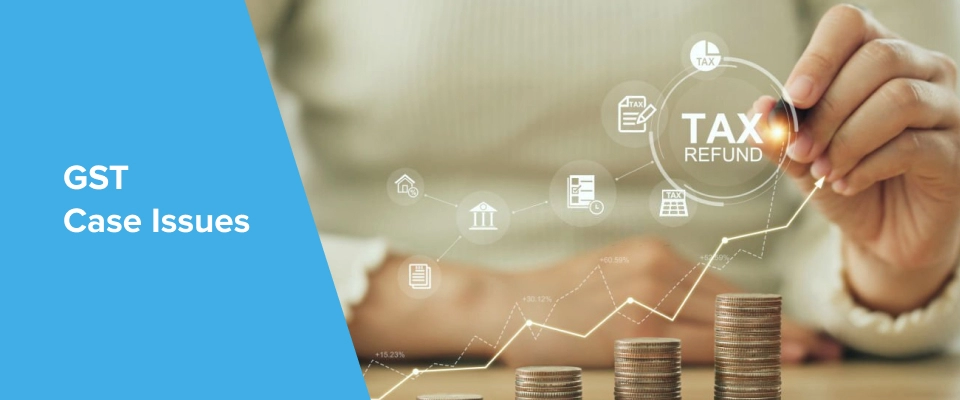
Fraud is defined to be an intentional act by an individual or a group of them, who are charged with governance (who are in authority), or third parties, involving the use of deception to obtain an unjust or illegal advantage. A fraud could take the form of misstatement of information (financial or otherwise) or misappropriation of the assets of the entity. A fraudster would always find an illegal way to take undue advantage of provisions of the tax law and thereby enrich himself by such unlawful means. GST is no escape for such fraudsters.
Fraud is defined to be an intentional act by an individual or a group of them, who are charged with governance (who are in authority), or third parties, involving the use of deception to obtain an unjust or illegal advantage. A fraud could take the form of misstatement of information (financial or otherwise) or misappropriation of the assets of the entity. A fraudster would always find an illegal way to take undue advantage of provisions of the tax law and thereby enrich himself by such unlawful means. GST is no escape for such fraudsters.
Major Areas Where GST Fraud Cases in India Evolved
Input tax credit and Invoices:
In the last three and half years, we have witnessed a large number of GST fraud cases around the use of fake invoices for invalid availing of Input Tax Credit (ITC), This ITC is further used to pay GST on outward supplies, and/or for claiming refunds. Sometimes this works as a tool for inflating the turnover of the supplier.
Invoice system misused under the GST Regime:
a) Issue of invoices without the supply of goods or services: Taxpayers have worked out a way to issue invoices without actually supplying the goods/services. Here, the payment of tax is made with Input Tax Credit which is not available to the issuer of invoice. The issuer of the invoice would merely issue a fake invoice and show the payment of tax with the non-existent input tax credit. This results in actual loss of revenue when the buyer of the invoice avails inadmissible credit for the payment of his/her tax. There have also been instances where no GST has been paid even though ITC by the issuers of the fake invoice.
b) Shell Companies: Creating shell companies is another form of GST scam. The fraudster would route multiple invoices through dummy entities and transfer the input tax credit from one company to another in a circular fashion to increase the turnover.
c) Utilising zero-rated supply category: Some taxpayers have attempted to find loopholes in the systems and tried to sell goods/services without issuing invoices. The sale proceeds are later adjusted with the invoices issued to taxpayers making zero-rated supplies. In other words, these adjustments happen without an actual supply (to taxpayers with whom the adjusted is done) so that ITC refund can be claimed.
d) Taking credits of inward supplies on which credit is not allowed is often seen.
e) Under-billing for outward supplies is also one of the widely used fraud techniques under GST.
Potential Motives For Creating Fake Invoices and GST frauds in India
Following are a few illustrative motives for issuing bogus invoices:
Refunds
In GST, the unutilised amount available in the electronic credit ledger and cash ledger (on the GST portal) after payment of taxes and other payments can be claimed as a refund in accordance with the provision of section 54 of the CGST Act, 2017. The techniques used to deceive here are:
Department Initiatives To Control Frauds Under GST
The Government has issued Standard Operating Procedures and mandated the implementation of E-invoicing for the identification and mitigation of fake invoice frauds under GST. The GST department has initiated the levy of penalties. In the Standard Operating Procedure, the GST department has given the following 3 methods:
a) Identification: Here, the department attempts to trace:
b) Investigation:
Once the officer has a reason to believe that there is a potential risk of tax evasion, he has the power to:
c) Action after detection:
Also, he would be subject to prosecution proceedings based on the quantum of the tax evaded.
Steps To Safeguard Interests
Concluding Remarks
Not every error can be considered as fraud: No proceedings under any law can be concluded without giving the parties an opportunity of being heard. While any error in reporting of a transaction can be suspected to be an intentional act to evade tax, we need to accept that; not every time there would be an intent to do so. There could be clerical errors, which lead to misreporting of the transactions (before the tax authorities). In such cases, the taxpayer should honestly accept the error and produce the relevant documents and proofs before the authorities to prove the genuineness of the error that had happened while reporting the transactions. Now you understand what is GST fraud and how gst scams performed by people.






